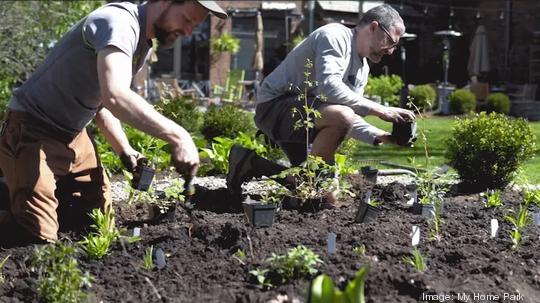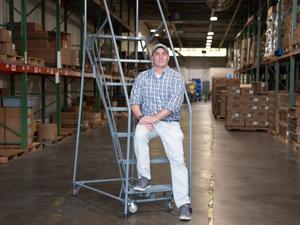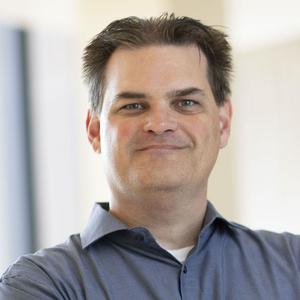
After exiting a successful LED lighting company in 2017, David Levine wanted his next company to have a public benefit.
Levine co-founded Mayfield Heights, Ohio-based Wireless Environment LLC in 2006 to create a line of Mr. Beams LED, battery-powered lights that homeowners could install themselves and use for safety and security purposes.
In 2017, Levine sold Wireless Environment and its Mr. Beams product lines to Ring, best known for its doorbell security camera systems. Ring was acquired by Amazon a year later.
He and his business partner had agreed to stay on at Ring/Amazon until April 2021. While waiting, Levine started thinking about his next product, probably made from plastic.
"People are going to buy it and then throw it out," Levine remembers thinking. "What good is that doing anybody?"
Then Levine, who lives in Chagrin Falls, Ohio, started researching the effects of plastic on wild bees and their work to pollinate food crops.
"It hit me. Why not do something to save the bees?" he said.
So in 2022, instead of starting another product company, Levine co-founded a "public benefit corporation" called My Home Park to assemble and sell kits of native plants that feed wild bees.
A public benefit corporation is a business entity with a dual purpose — making a profit and promoting the public good, according to Nolo.com.
In 2020, Ohio joined 38 states that allow public benefit corporations (PBCs) as a form of business incorporation, according to a blog post by Cleveland law firm McDonald Hopkins.
While PBCs do not get special tax treatment like non-profits do, they do have the liability protections of corporations, according to Wolters Kluwer, the Dutch law firm with its U.S. headquarters in Philadelphia.
Having a beneficial purpose often gives PBCs a competitive advantage with investors, customers and employees, Wolters Kluwer said.
"This status tells all who invest with us and work with us that we are mission first — profit second," Levine said. "We did this to be clear on our priority, mainly to investors."
While non-profits are required to retain and reinvest their financial surpluses, public benefit corporations are owned by shareholders who receive dividends, McDonald Hopkins said.
And though similar in name, public benefit corporations are not to be confused with B-Corps, which carry a certification similar to the one from Underwriters' Laboratories (UL), Levine said.
As a B-Corp, "you are evaluated for compliance by an organization and issued the designation if you meet the criteria," said Levine, who plans to eventually apply for that designation for his startup, too.
Levine and co-founder Wyatt Shell raised money for their startup from the same people who invested in Wireless Environment — another company with a social mission, though not a public benefit corporation.
Levine and Shell, who holds a Ph.D. in integrative and organismal sciences from the University of New Hampshire, used some of that money to plant 10,000 plants in Ohio in 2022, Levine said.
The plantings demonstrated where nearly 100 plant varieties grow best and how beautiful they are, Levine said.
The two plan to pare down the number of varieties to about 35 and add demonstrations in five Great Lakes states this year, he said.
My Home Park customers can type in their zip codes at the company's website to find what native plants work best for their locations. Then customers can buy kits that include plants from small growers and garden design plans, Levine said.
"Our hypothesis is that if we make it that easy, people will buy these gardens because they're beautifying their yards," he said.
Levine and Shell also spend a lot of time creating awareness about how their company's gardens can preserve wild bees.
Although My Home Park is small — it just hired its first part-time employee — Levine expects the company to take off the same way Mr. Beams did.
"We'll find a big opportunity somewhere," he said.






